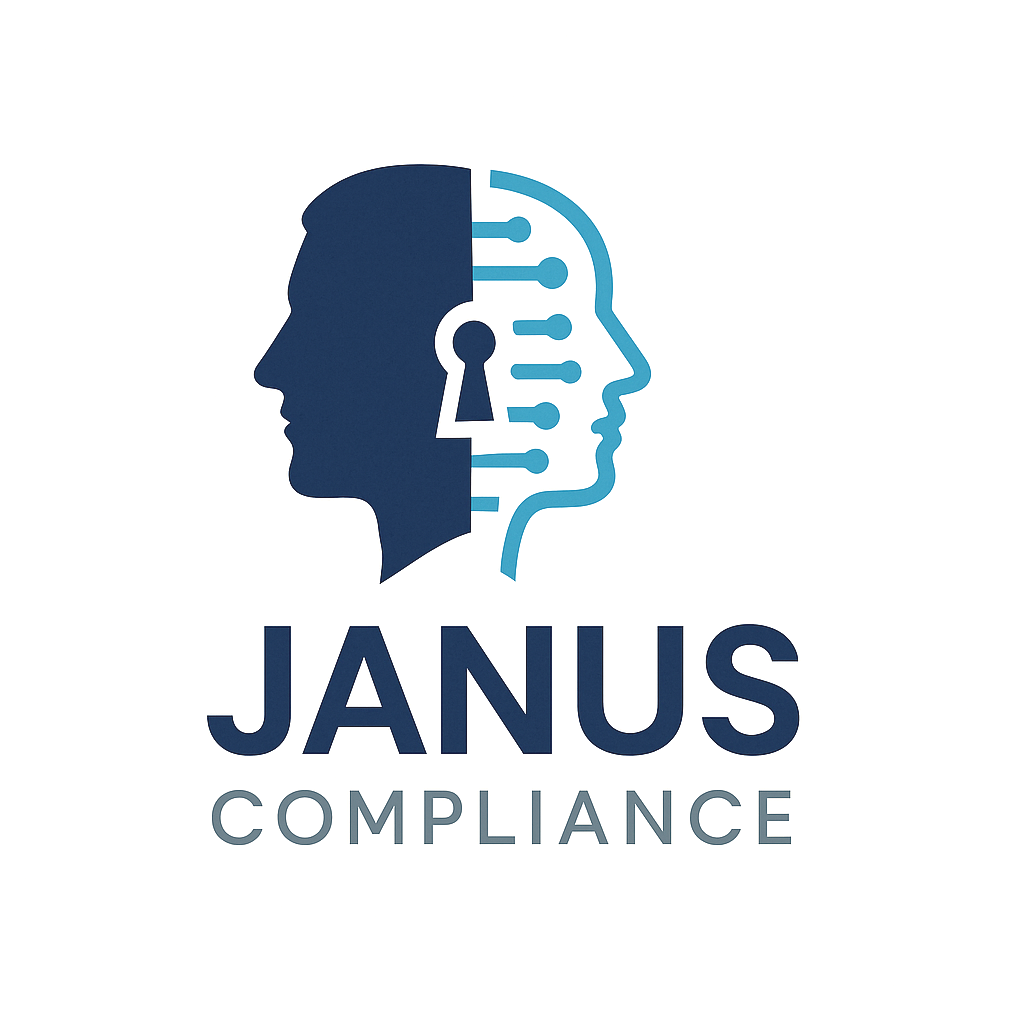Your Data's Passport: A Founder's Guide to UK & Irish Cross-Border Data Transfers
As a founder of a UK or Irish tech company, your ambition is global. Your customers, your employees, and your software vendors are spread across the world. In this borderless digital economy, it's easy to assume that your data can be just as mobile. This assumption can expose you to significant regulatory risk and potential fines.
Under both the UK and EU GDPR, personal data is not free to travel. It requires a "passport" - a valid legal mechanism that ensures it is protected to the same high standard whether it's in London, Dublin, or Dallas. Using a US-based cloud provider like AWS or a popular SaaS tool like Mailchimp without this "passport" in place constitutes an unlawful data transfer that regulators are actively investigating.
At Janus, we find that this is one of the most misunderstood areas of data protection. This guide will provide a clear framework for understanding your obligations and de-risking your international operations.
The Core Principle: Restricted Transfers
Both the UK and EU GDPR (which applies in Ireland) prohibit the transfer of personal data outside their respective territories unless you have a specific, legally-approved safeguard in place. The most common safeguards for a tech company are:
An Adequacy Decision: This is a formal decision that a specific country or framework provides an adequate level of data protection. For transfers to the US, this is handled by:
The UK-US Data Bridge for UK companies (operational since October 12, 2023)
The EU-US Data Privacy Framework for Irish companies (operational since July 10, 2023)
Important caveat: These only apply to US organizations that have specifically certified - not all US companies are covered.
Appropriate Safeguards: These are legally-binding contracts that you must have in place with the data importer. The most common are:
The International Data Transfer Agreement (IDTA) for UK companies
The EU Standard Contractual Clauses (SCCs) for Irish companies
The Critical Compliance Gap: Transfer Impact Assessments
Simply having an IDTA or SCCs in your contract with a US vendor is not sufficient for compliance.
Following the landmark "Schrems II" court ruling in July 2020, you are legally required to conduct a Transfer Impact Assessment (TIA) when using contractual safeguards. This is a risk assessment where you must evaluate the laws and practices of the destination country to ensure that the contractual clauses you've signed are actually enforceable in practice.
The Challenge: The TIA must specifically consider the risk of foreign government surveillance. For transfers to the US, this means assessing the impact of laws like the Foreign Intelligence Surveillance Act (FISA). This is a complex legal and technical assessment that applies whether you are in the UK or Ireland.
Critical distinction: If your US partner is certified under the Data Privacy Framework, you don't need a TIA. But if you're relying on SCCs or IDTAs, the TIA is mandatory - and must be documented.
The Hidden Exclusions
Here's what many founders don't realize: entire sectors are excluded from the Data Privacy Framework. If your US partners are in banking, insurance, or telecommunications, they cannot participate in the DPF or Data Bridge. This means you must use alternative mechanisms with full TIAs - significantly increasing your compliance burden.
Major cloud providers like AWS, Google Cloud, and Microsoft Azure have obtained certifications, but you must verify their status and ensure it covers your specific use case.
Practical Compliance Steps
Map Your Data Flows: Identify all US-based services processing personal data
Verify Certification Status: Check the official DPF list monthly for all US partners
Implement Appropriate Safeguards:
For certified partners: Rely on adequacy frameworks
For non-certified partners: Execute IDTAs/SCCs and conduct TIAs
Document Everything: Regulators expect comprehensive documentation of your transfer decisions
The Enforcement Reality
While the Irish DPC has issued record fines (€1.55 billion in 2023), the UK ICO has focused more on marketing violations than transfer breaches. However, both regulators are increasing scrutiny on cross-border transfers, particularly for tech companies handling significant data volumes.
The real risk isn't just fines - it's operational disruption if you're ordered to suspend transfers.
Conclusion: From Compliance Burden to Competitive Advantage
Cross-border data transfers are complex but manageable with the right approach. For a modern tech company operating in the UK or Ireland, getting this right is not just about avoiding regulatory action; it's about building a scalable, global business on a foundation of trust and legal certainty.
At Janus Compliance, we specialize in navigating this cross-border complexity. As an outsourced DPO service, we manage the entire process for you—from data mapping to conducting the comprehensive TIAs required to de-risk your international operations. We handle the complexity so you can focus on growth.
